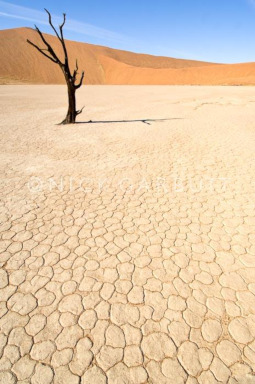
Blue Skies Bring Tears
'Blue Skies Bring Tears'
The desert stretched from horizon to horizon, a flat and barren expanse. The dead trees offered no relief from the sun, the songs of lone insects mocking any who strayed out this far as they buzzed and crowed of the shade they had found. The dry earth was cracked, an infinity of jagged tiles waiting underhoof to drink up sweat and tears and blood. In the unreachable distance stood great red mountains, their peaks clouded by eternal thunderheads; the clouds were dark storms that brought forth no rain yet scarred the peaks with strikes of lightning, the clap and rumble echoing for miles and miles out over the hungry dirt. These were the Badlands, the place of death, where only bones would grow in the wind and dust.
What was the cause of this desolation? What sundered the skies, banishing the clouds and their rain and leaving only the merciless gaze of the blazing sun? What rent the earth and left it broken? What felled the trees, the grass, the life? War? fell magicks? the breath of dragons? It is unknown. The land has always been bad, has always been the place where roads and maps end. We do not go there, ponies say. We go so far and no further. What lies beyond it? None have returned to speak of the things they have seen.
In this blasted cradle, a lone pony walked.
Her hat, of a modest and plain design, sat low upon her head, darkening her eyes and hiding them from the unrelenting sun. The kerchief about her neck was stained with water from her canteen (but never enough to drip, no, never enough to drip), siphoning off heat and casting it to the desert winds. She covered her body with a loose tunic and fixed it with a tight sash, as she had from the days of her past. On her right side there hung a saddlebag, filled with food and kindling and a bedroll, for the Badlands would not provide; on her left, her waterskin, still plump and bulging after days of travel over the edge of the civilized world.
Upon her back, she carried a fiddle, and this was the most precious thing of all.
She did not wander. Wanderers were aimless, meandering, and she strode with purpose in the realm of the dead, her hooves crunching the dirt. In the mornings her shadow fell behind her and she pressed into the face of the sun, and in the evenings it lay before her like the needle of a compass. It was the shadows that guided her. But one must be careful, for in the land that knows nothing but sun by day, there are many shadows, treacherous wayward things that seek to deceive and mislead. Shadows of the husk trees, the red rocks, the whispering parched grass, all waiting for the sun to sink beneath the horizon, to vanish behind the burnt mountains, so they could claim the Badlands for themselves.
Nothing could be said to live here, no, but ponies did say this was the land where the shadows dwelt.
-/-
She laid her pack upon the ground at sunset beneath a broken tree, hiding behind its hard and hollow wood from the winds to make her campfire for the night. She took a measured drink and laid the waterskin upon the ground with care and reverence, for the desert would love nothing more to steal her water and plant her bones in the arid soil. After building a temple of sticks from the bundle she carried with her, she sparked a flint and set them to blaze. To the fire she added some of the grass that blended with the pale earth, pulled free from the ground like tenacious weeds; it would smoke through the night, but the stubborn grass would keep the fire alive.
She sat and crossed her hind legs, and dealt herself a solitaire hand from a battered deck of cards that traveled in the bottom of her saddlebag. What she played was half a game and half a fortune; the cards spoke of loss and death and places long left behind, but it was a story she already knew. When she lost the hand and swept the cards back together, the flickering fire was the only light left.
Piercing azure blue day had given way to murky indigo night, a tapestry of constellations playing out their nightly tableaux, forever unchanging. The faint light of the moon did not fall on the Badlands; the desert ruin was too far and she was too far, and the earth turned black outside the safe ring of her campfire, the cracks becoming veins on the skin of a slumbering ebony beast. In the day her shadow stood tall and never faltered; now it danced and capered, for it was no longer truly hers. It wanted to run out into the night, become one with all that blackness, and disappear from being as the sun rose.
It was time.
She faced away from the fire and brought forth her fiddle, her instrument, her voice, and she laid her chin against the rest. She closed her eyes as she would if she lay against a lover's chest, and she drew her bow across the strings. The song she played was nameless, its notes never written down nor would be remembered after this night. It was composed of memories, of broken images of the past; it was composed of shadows.
Her song mourned the loss of days gone, a time when she had brewed coffee on a wooden stove as the snow had piled up outside her door, back in a world where there was such fantastic and unbelievable things as coffee and stoves and winter. It was the place where she had been born and for many years had thought it the place where she would die (and there was still time for that, perhaps, still time), and it was the winters she remembered always, the cold trapping her on the farmstead, the blank whiteness of possibility and nothingness reflected from inside her out into the world. You'd never leave that warm place by the fire, with your warm mug and your knitted scarf, but you must leave, and leave she did, and those were her days of wandering. She'd traveled in all directions, to towns and cities and hamlets and metropoli, a young mare with naught but the fiddle upon her back.
And in her days of traveling, that was when she met him.
In Manehattan, that unreal city, their eyes had met upon a bridge with the water flowing beneath them. He had been born and raised in the city built upon the water, and he gave her hyacinths. Their time together was one of poetry and cynicism, of two ponies without a true place within the world who had found berth within each other. He taught her things so acerbic and cold that it lit a fire in her to hear more, and the coffee they drank was as bitter as their words, so different from what had brewed on the stove in times of comfort in her other life before. They were wild and carefree and bohemian, the last a word she had never heard before it had left his lips. The poet, she had loved him, and with that love she played music of such sorrow that told the world you will never understand, you will never understand, you will never understand us.
The poet, she had loved him. The poet, he had loved her, but love was not enough to make him whole. As he fell from the bridge where they had first met, his eyes were open, and they faded beneath the water of the river as he drowned. And broken was her heart, but yet a part of her, the part that he had kindled with his distaste and distrust of the world, that part knew he would always fall and sink. They had played the game that was also fortune, and it had foretold to fear the water, and they had laughed for they lived in the city built on water, great Manehattan, that unreal city.
All this was in her song, the mourning song, the dirge, the elegy, the hymn, that she played for the kingdom of shadows in the Badlands. Every note was a trickling tear as she played to remember and relive that cruel April, though her face remained dry. She opened her eyes and saw him there in the shadows; black was his mane and black was his coat, though neither had been so in life. But in the darkness, one more shadow, his eyes shone like pearls.
She would turn back. Back, when the sun rose, and she would walk back towards civilization and the light. But that would come later.
For now, it was shadows she wanted.
Fini.




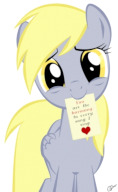

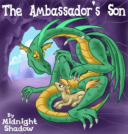
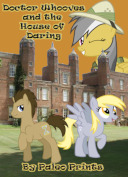
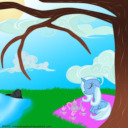

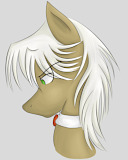



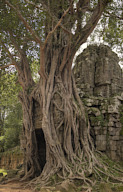





I've been through the desert as a horse with no name
It felt good to be out of the rain
In the desert you can remember your name
'Cause there ain't no one for to give you no pain...
First thing that came to mind upon finishing the story. A sorrowfully beautiful piece. I get the sense that there's a lot behind this that I'm not getting. In any case, thank you for it.
4653063
But but I already used A Horse with No Name...
I don't know if there's that much more to get that doesn't come from reading the poem, or at least sort of skimming over it; most of the vague references and images are lifted from there. Something pushed me to re-read The Waste Land, and well, this is the result of inspiration.
4654785
Well, there's the problem. Didn't read the poem.
One degree of separation between horse fiction and T. S. Eliot. I love this site.
Absolutely beautiful.
You should submit this to someplace where good Pony fanfiction is archived.
4654785 What is The Waste Land? Where can I read that?
4669392
It's a poem; there's a link at the end in the author's notes. Or you can just put "ts eliot the waste land" into the Google device.
And I will show you something different from either
Your shadow at morning striding behind you
Or your shadow at evening rising to meet you;
I will show you fear in a handful of dust.
I had never realised your pen name was a reference to this. This is a nice little oneshot - short and sweet.
Is that paraphrased from the original poem? Because it sure does a solid job of establishing the poem's setting as a place of absolute death; stealing away all fluids that keep one alive every second, and divulging nothing in return. It makes a very romantic sort of sense that Fiddlesticks would go there to play for the dead.
5040003
I'm not 100% sure - I don't think so, but I was also drawing a lot from the first volume of Stephen King's Dark Tower series -- which itself pulls very heavily from The Waste Land, so it might have filtered down somehow after all. In any case, deserts (especially the kind that could be named 'the Badlands') are pretty merciless places; there's lots of environments that can look barren and lifeless, but only a desert can manage to look dead.
This is a beautiful piece. It's a shame it hasn't gotten more attention.
This is a truly beautiful read.
Thanks for writing!
5040522 I knew there was some of the gunslinger there
What are the roots that clutch, what branches grow
Out of this stony rubbish? Son of man,
You cannot say, or guess, for you know only
A heap of broken images, where the sun beats,
And the dead tree gives no shelter, the cricket no relief,
And the dry stone no sound of water. Only
There is shadow under this red rock,
(Come in under the shadow of this red rock),
And I will show you something different from either
Your shadow at morning striding behind you
Or your shadow at evening rising to meet you;
I will show you fear in a handful of dust.
I loved Eliot, and then I was disillusioned. Now that I live alone in Oxford (unreal city) I return to the wasteland and find myself reflected back as I saw myself through a glass darkly in Prufrock as a freshman alone in the lobby of my dorm.